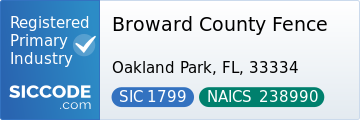
Have you ever found yourself in a tricky situation with a neighbor over the ownership and maintenance of a shared fence? If so, you’re not alone. The responsibility for fencing can be a source of confusion and disagreement, as one Broward County resident recently discovered.
The current homeowner, let’s call them Mr. Jones, was unaware that the previous owner, Mr. Smith, had paid for the installation of a fence on the right side of the property. However, Mr. Smith now claims ownership of the fence and expects Mr. Jones to contribute to its upkeep. But is that really fair? Should Mr. Jones be obligated to pay half the cost of a fence he didn’t even know existed?
This scenario raises some important questions about fence ownership, responsibilities, and the potential for disputes between neighbors. Understanding the legal and practical aspects of shared fencing can help you navigate these tricky situations and find a fair resolution.
Understanding Fence Ownership and Responsibilities
Determining fence ownership and understanding the associated responsibilities can be a complex endeavour, often relying on the specific details outlined in property deeds and any previous agreements between neighboring homeowners. The boundary fences separating properties can be a source of confusion, particularly when it comes to maintenance and repairs.
In many cases, shared fences along property boundaries are considered the joint responsibility of the adjoining homeowners.
This means that the fence ownership and associated costs for upkeep are typically divided equally between the parties involved. However, the specific fence documentation and agreements in place can vary, making it essential to review any relevant fence deeds or legal agreements to determine the exact rights and obligations of each homeowner.
Maintaining open communication and negotiating fence responsibilities amicably with neighbors can help avoid potential disputes and ensure a harmonious co-existence. In the event of disagreements, seeking legal advice or exploring mediation may be necessary to find a mutually acceptable resolution.

| Fence Ownership and Responsibility Considerations |
|---|
| Fence deeds and legal agreements Boundary lines and property boundaries Shared responsibility for fence maintenance and repairs Negotiating fence agreements with neighbors Seeking legal advice in case of fence disputes |
Navigating Disagreements: Amicable Resolutions vs. Legal Action
When it comes to fence disputes, neighbor disputes and fence responsibility disagreements, the goal should always be to find an amicable resolution. This can involve open communication, fence mediation and fence negotiation to address concerns over fence repair costs and fence replacement costs. However, if an agreement cannot be reached, there are potential fence legal action options to consider as a last resort.
Boundary disputes and issues surrounding property law can be complex, so it’s important to understand your rights and responsibilities as a property owner. Seeking professional guidance from a solicitor who specialises in boundary disputes can help provide clarity and advise on the best course of action.
In some cases, the costs associated with fence repair and fence replacement may be shared between neighbors, depending on the specific circumstances and any prior agreements. However, if an amicable solution cannot be reached, legal intervention may be necessary to determine ownership and financial obligations.
It’s always preferable to exhaust all avenues for fence negotiation and fence mediation before considering fence legal action. A collaborative approach that focuses on understanding each party’s perspective and finding a mutually acceptable solution is often the best way to resolve fence disputes and neighbor disputes related to fences.
Fence

When it comes to replacing or installing a new fence, there are several important factors to consider beyond just the ownership and responsibility aspects. The choice of fence types and fence materials can significantly impact the overall aesthetics, fence privacy, and fence security of your property. From traditional wooden fences to modern metal fences and fence panels, each option offers unique advantages in terms of fence aesthetics, fence height, and fence regulations.
Proper fence installation and fence maintenance are also crucial to ensure the longevity and effectiveness of your boundary solution.
Understanding the relevant fence regulations and obtaining any necessary fence planning permission is crucial to avoid potential issues down the line. By carefully considering these factors, you can create a fence that not only meets your needs but also enhances the overall look and feel of your outdoor space.
| Fence Type | Fence Material | Fence Height | Fence Aesthetics | Fence Privacy | Fence Security |
|---|---|---|---|---|---|
| Wooden Fence | Timber | Up to 2 metres | Traditional, natural | High | Moderate |
| Metal Fence | Wrought Iron, Aluminium | Up to 2 metres | Decorative, modern | Moderate | High |
| Vinyl Fence | PVC | Up to 2 metres | Low maintenance, diverse | High | Moderate |
| Chain Link Fence | Galvanised Steel | Up to 2 metres | Utilitarian, cost-effective | Low | Moderate |
Conclusion
In conclusion, the issue of who should pay for a neighbor’s fence can be a complex and potentially contentious matter, requiring a clear understanding of fence ownership, responsibilities, and the relevant laws and regulations. While amicable resolutions are always preferable, sometimes fence disputes may necessitate legal intervention or the involvement of professional fencing contractors like Broward County Fence (954-234-2699).
Establishing clear property boundaries and neighbor agreements upfront can help prevent future fence maintenance and repair issues. If disagreements do arise, it’s crucial to explore all options, from open communication to mediation, before considering legal action. By approaching these challenges with patience and a spirit of compromise, homeowners can often find practical solutions that satisfy all parties.
Ultimately, the responsibility for a neighbor’s fence should be determined based on the specific fence ownership and legal requirements in the local area. By staying informed and working together, neighbors can ensure that fences serve their intended purpose of providing privacy, security and enhancing the overall aesthetic of the shared property.
Contact Broward County Fence at 954-234-2699 or visit our website at browardcountyfence.com to discuss your fencing needs today.




